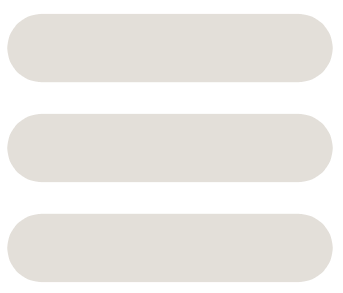One of the unique hallmarks of doctoral studies is their inherently open-ended nature. Original research is, after all, an exploration into the unknown. However, while this freedom is essential, it’s crucial to remember that successful research also relies on clear, well-defined processes and logical frameworks. The right kind of supervision can guide and steer doctoral scholars, turning vast unknowns into manageable, actionable steps. In this post, we’ll be diving into the key differences in the types of feedback that can transform—or hinder—the process.
The Pitfalls of Vague Feedback:
Obtaining feedback is invaluable for doctoral students, especially when clear instructions or predefined tasks are scarce. But what happens when that feedback, however well-intentioned, is framed in a way that makes it difficult for students to act on or be effectively guided by it? Let’s examine some common examples of feedback that can inadvertently prevent progress:
- “Go and Read / Broaden Your Horizon”: Sounds helpful, but it can lead to students becoming lost in an almost endless sea of literature, spending countless hours compiling information with no clear focus.
- “Be Curious and Creative and Find a Research Topic That Interests You”: While curiosity is valuable, scientific research is not simply about personal satisfaction. The emphasis must be on finding a research problem with a fitting research question, and addressing a gap in the existing literature. “Interest” will not always lead to a solvable problem.
- “Go Find a Fitting Framework That Provides an Anchorage for Your Research”: Asking a student with an unclear research problem to find a fitting framework is often a recipe for confusion. It’s like asking someone lost in a maze to build a map before they’ve explored any of the paths.
- “Consider Reading XYZ as a Starting Point”: This can sound like a focused suggestion, but it can also lead to the same problem as “Go and Read,” eventually looping back to unfocused exploration.
- “Start Out Broadly and Then Get Focused”: For seasoned scholars, this means keeping an open mind while gradually narrowing the scope. For doctoral novices, it can easily translate into accumulating vast amounts of information without ever achieving a clear direction.
These examples highlight a common issue: well-intentioned feedback that lacks specific guidance and actionable steps.
The Power of Focused and Actionable Feedback:
Focused and actionable feedback that is effective is typically sequential and emergent. The key is to break down the research process into a series of manageable steps and actions.
Let’s revisit the example of finding a fitting framework to a poorly defined research problem. Instead of suggesting a broad search for frameworks, a sequential feedback chain might unfold as follows:
- **”Can you tell me what the (research) problem is?”:**Doctoral scholar: “We experience a very high fluctuation rate in our organization.”
- **”Do you know why that problem exists?”:**Doctoral scholar: “Our HR department thinks that payment is an issue, and that the competition is more attractive.”
- **”Is this the first time this has happened?”:**Doctoral scholar: “Well, we have experienced this for 6 years. Though the fluctuation increased with the restructuring we underwent 3 years ago. During the restructuring, we had many changing roles and change happened in a sometimes not so smooth way. We received a couple of messages and signals of less motivated workforce in the departments of A and B.”
- **”The other time(s) that this happened, what were the reasons for such?”:**Doctoral scholar: “No, 6 years ago it was more about lack of opportunities to grow within the company and better external conditions. While the fluctuations 3 years ago seemed to be rooted in the changes that happened at that time.”
- **”Was there a common element in the lack of training opportunities 6 years ago and the change implementation 3 years ago.”:**Doctoral scholar: “At the top of it, there was certainly the same leadership that settled on both.”
- **”What is the literature saying about (a) Leadership, (2) Change, (3) High Attrition, and (4) Motivation?”:**Doctoral scholar → LITERATURE BASED ANSWER AFTER HAVING FOUND STUDIES A, B AND C.
Note: This is the entry point into a rather focused literature research. From here on, follow up with the questions such as:
- What did the studies A, B and C discover?
- How did A, B, and C discover this?
- Is the data from the studies of A, B, and C the same?
- What are the differences in the data?
- How is the difference in the data impacting the conclusions that A, B, C reached?
- What is still unknown about the initial situation?
- What from this unknown situation relates to your organisation? And what will your research now attempt to find out?
- Would the methodologies from A, B, C be suitable to find the information you are looking for?
- How would you combine the methodologies from A, B, C? And, has someone done that before?
- You say D combined the methods of A, B and C in a study on XYZ. Would that serve your research as a suitable framework?
By the end of this process (which, in this example, requires 16 questions), the student has identified a potentially suitable framework for the research. Compared to “Go and Read” and vague suggestions like “Be Creative,” this approach is far more concrete, actionable, and guided.
Are You Stuck in Your Research and Look for Guidance?
If you are stuck in your research and look for focused and actionable feedback, be welcome to explore our Research Support Programme.
And for Fellow Doctoral Faculty: Be Invited to Join our Faculty Development Programme
Providing doctoral scholars with focused and actionable feedback will clearly increase their ability to progress and complete their research and thesis. If you are a faculty member engaged in doctoral education, you are invited to join our Doctoral Faculty Development Programme.


